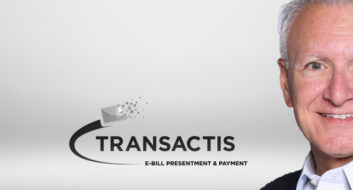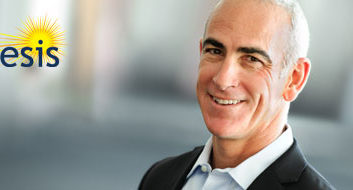Q&A: David Langsam, CEO, AdvantEdge Healthcare Solutions – “To Thine Own Self Be True”
Posted by | September 6, 2012
 The need to innovate and improve the healthcare system is greater than ever before, creating a number of opportunities and challenges for entrepreneurs in healthcare IT. AdvantEdge Healthcare Solutions (“AdvantEdge”) is an emerging leader in medical billing services, practice management, and coding. A string of acquisitions over the past three years has strengthened AdvantEdge’s services as it continues to scale.
The need to innovate and improve the healthcare system is greater than ever before, creating a number of opportunities and challenges for entrepreneurs in healthcare IT. AdvantEdge Healthcare Solutions (“AdvantEdge”) is an emerging leader in medical billing services, practice management, and coding. A string of acquisitions over the past three years has strengthened AdvantEdge’s services as it continues to scale.
Who better to illuminate the state of the industry than David Langsam, CEO at AdvantEdge. In this Q&A, we cover the challenges and opportunities, how AdvantEdge is addressing them, and what David’s advice is for growing healthcare IT companies.
Do you consider yourself an entrepreneur? If yes, why? If no, why not?
I do consider myself to be an entrepreneur, in that I believe an entrepreneur is someone who identifies market needs, develops solutions to meet those needs, and becomes almost obscenely focused on building an organization to deploy the solutions into the marketplace. So yes, I think that I do those things.
An entrepreneur also has an appetite to do that over and over, either within the confines of an existing organization or as a new startup enterprise. I tend to do it within organizations that have already achieved some revenue realization, where I can not only recognize market needs but see how and if they dovetail with the business’s capabilities and the strengths, needs, and beliefs of that business.
You’re known as an “expert in healthcare reimbursement management.” To what would you attribute your success?
I would not consider myself an expert, and I think it’s early in the game to describe myself as successful. But I’ve been fortunate, and I do have a lot to be proud of.
With regard to the progress we’ve made at AdvantEdge, I would attribute that to paying close attention to the market and our clients. We listen to the experts or the incredibly bright people within and outside our business, read voraciously, and focus intensely on how we can best bring value to our clients. All of this supports our business purpose of enabling healthcare providers to thrive.
What’s the most important lesson you’ve learned in your professional career?
“To thine own self be true.” You’ve got to be brutally honest with yourself—as an individual and for the business. It might be recognizing the changes in your market, the weaknesses within your business, your own personal limitations, or significant industrial or macro-economical swings that could negatively affect your business. Almost all problems, changes, and challenges can create opportunity if you have the courage to recognize their existence and address them accordingly. You also need to be honest about where partners can bring the greatest value to what you or your organization is trying to accomplish. A key danger of not being honest with oneself is being such a strong leader or good salesperson that you are excellent at compelling great people to move swiftly in the wrong direction.
What advice would you give startup or growth-stage companies in healthcare IT?
With regard to growth-stage companies, I would remind them that many of tomorrow’s leaders aren’t even on the radar. Especially in a fast-paced industry like healthcare IT, you need to tune in to the needs of the market, be very aware of how those needs are changing, and relentlessly innovate in and around those needs without burying yourself in a box of believing that you understand the market’s needs better than the market itself.
As for startups, I would advise them to focus on their biggest strength, which is generally speed and the ability to out-innovate their larger competitors. That’s where they usually get an opportunity to leapfrog their field.
What’s your long-term vision for reimbursement? Healthcare IT?
Reimbursement and healthcare IT are very different although both are impacted by and have impact on the healthcare economy. Today the healthcare system is inefficient, with reimbursement and provider rewards being just one key example.
At the physician level, reimbursement is geared more toward the community’s consumption of services than maintaining a healthy populace. Quality of care has only a limited impact on reimbursement or income for healthcare providers today. It’s all about utilizations; the more procedures a physician provides, the more money a physician’s going to make, and that creates an upside-down motivation, in my opinion, and an upside-down economy, because we can’t afford to continue consuming healthcare at the rate that we do today.
What’s the alternative? Change physician rewards to focus on quality as opposed to volume. Well, you can’t compensate somebody on quality of work unless you have a common method by which the quality can be consistently measured. And that is one of the greatest opportunities for healthcare IT. The reimbursement models have to change, and they can’t change without a strong healthcare information technology infrastructure that’s consistently applied across the healthcare column.
Another is eliminating inefficiency and thereby economic waste through automation and information. That is one of the areas where AdvantEdge really excels: our ability to enable providers to maximize financial performance and minimize compliance risk through the use of actionable information so they can efficiently manage their businesses, practices, or institutions. Eliminating waste and inefficiency will also unlock a treasure of dollars to reward outcomes.
What impact will the outcome of the November elections have on healthcare IT and reimbursement?
Without getting too deep into politics, I believe that a Democratic victory will have more impact on healthcare reimbursement than a Republican victory, although not necessarily on healthcare IT. The Democratic platform for healthcare proposes sweeping change and the Republican platform proposes more limited change.
But the conversations I have with our management team are much more about positioning AdvantEdge and our clients to thrive, regardless of the reimbursement environment. So in all cases, the inefficiencies within the healthcare economy still need to be minimized, and we need to devise our service offerings to continue providing solutions that leverage technology and create more efficient business processes for the healthcare community.
Dramatic changes to the reimbursement models may impact how we deliver our revenue cycle management solutions but will also accelerate the growth of our information management and business intelligence solutions, the need for our expertise, and really highlight some of the other services and solutions we have in development. Additionally, as one of the industry’s leading players, we are much better prepared to meet these potential changes than almost all of our competitors. In all cases, I think we will see positive impact on the world of healthcare information technology.
How do you operate at AdvantEdge? How do you motivate your team? What’s the culture like?
We have over 550 employees, and motivating them is no easy task. Hopefully I’m giving everybody the tools that they need to accomplish that. We’re committed to providing opportunities for professional and personal growth, economic rewards for individual and team accomplishments, education and training to develop our team, and an open, transparent environment to encourage innovation and promote teamwork.
I have a couple of philosophies, the first of which is that it all begins with communication. Everybody has to have visibility into our goals and understand how they can influence our achievement of those goals. Secondly, we make sure that people recognize that performance is rewarded and nonperformance is not tolerated. We have ambitious goals this year, one of which is to earn recognition as a premier employer and we are working hard to achieve that.
What’s your biggest business challenge right now?
The first is reductions and downward pressure in reimbursement, because that’s a challenge to our clients as well as to our business. It’s a challenge to our clients because it creates economic pressure for them, potential client dissatisfaction that’s not of our making, and leads to malaise in the marketplace in general. It also puts pressure on our bottom line, because when reimbursement goes down, so does our yield per procedure, because we’re earning the percentage of what we’re recovering on behalf of our clients. So it’s probably our most significant challenge.
The second challenge is the payer community staying ahead of the technological changes that are required in the reimbursement environment, like ICD-10. We have our own proprietary technology, which enables us to stay ahead of these changes, but if the payers are not ready, we can still see reimbursement get bottlenecked and we might be required to stall submissions or to do things manually instead of on an automated basis. This can create delays in cash flow to our clients and increase the cost of delivering our services.
What’s your biggest business opportunity right now?
Most of our competitors are under $5 million in revenue, about a tenth of our size or less, and they are going to find it more difficult to continue meeting the needs of their clients and the market under the pressures and the challenges I’ve just described. Many of these smaller players, if they do not have the ability to make significant investments in technology and automation, are going to risk losing business at a significant rate to the more sophisticated players in the market, such as AdvantEdge.
The second best opportunity is that, as providers continue to aggregate, the decision-makers are also going to be looking for solutions providers with stronger balance sheets and deeper resources, specifically related to technology, information, and expertise, an area where AdvantEdge excels.
And lastly, as we continued to integrate our acquired businesses, our ability to improve our bottom line will enable us to accelerate our investment in meeting the ever-changing needs of the marketplace and outperform our competitors on behalf of our clients.
What’s your go-to news source?
I’ll read just about anything that’s put in front of me that is interesting and relevant. Modern Healthcare’s Daily eDelivery Edition is a good informative e-distributed publication. The Advance Edition, which comes on Sunday nights, talks about what’s happening in the week ahead — very cool stuff. Second is the Wall Street Journal, and I love just flipping through USA Today on the iPad. And there’s always a TV on in the background when I’m not in my office, so any news show that’s background white noise is great for me.
What’s your “must-have” app on your iPhone/iPad?
We’ve developed what we call the InfoEDGE dashboard. It’s just about ready for prime time, and is a must-have app for me because it’s going to give me the same types of dashboards in a mobile platform that I use in a desktop platform to see the business and help understand where opportunities exist and where red flags and challenges are lurking.
I also like the Google-driven pushed news sources, and I diligently use Notes Plus, a phenomenal freehand note-taking app that can do typed or freehand text and enable me to annotate PDFs freehand. I’m committed, before the end of 2012, to stop carrying around four or five different notebooks to cover different aspects of my responsibilities. I’m about 90 percent there now.
For more information about AdvantEdge, please visit the company’s website (www.ahsrcm.com), follow it on Twitter (@DoctorBilling), or like its Facebook page (www.facebook.com/AdvantEdgeHealthcareSolutions).



